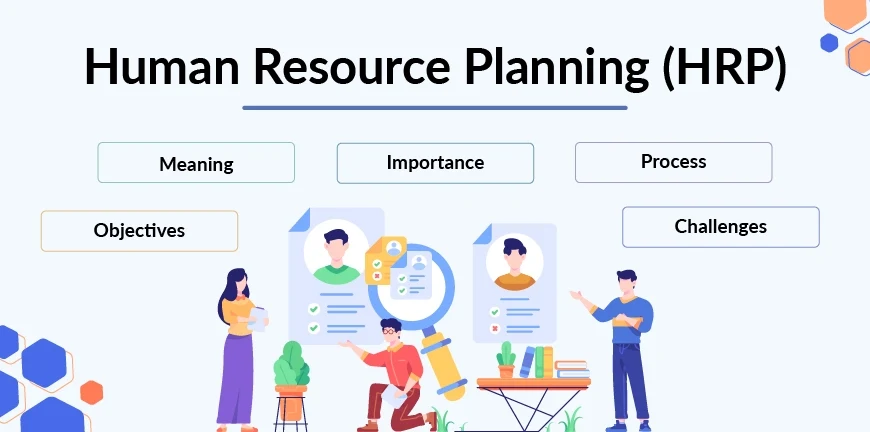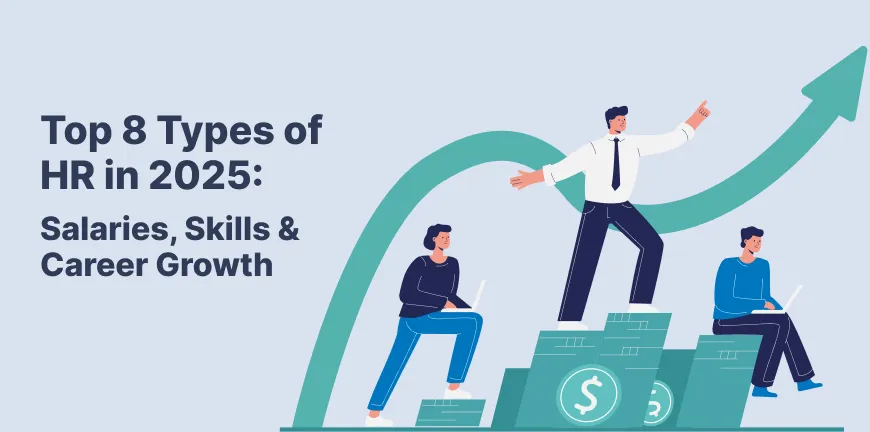
How to Hire a Full Stack Developer in 2025? What You Need to Know
14/12/2024
What is Offshore Staff Augmentation? Benefits, Challenges, Implementation
17/12/2024- What Is Human Resource Planning (HRP)?
- What Is the Importance of Human Resource Planning?
- What Are the Key Objectives of Human Resource Planning (HRP)?
- What Is the Process of Human Resource Planning (HRP)?
- What are the Challenges in Human Resource Planning?
- What Role Do HR Professionals Play in Human Resource Planning (HRP)?
- Frequently Asked Questions (FAQs)
Great human resource planning is a top-down approach in engineering, encompassing every detail, from the tiniest aspects of HR to strategies for improvement, considering all factors that impact your business and HR specifically. It examines what can be done to amplify or mitigate such an effect, as well as who will oversee the management and implementation of change. In this article, we will look at the definition of human resource planning, the importance of human resource planning, and how to make it happen.
What Is Human Resource Planning (HRP)?
The process of optimizing the strengths of the existing workforce to meet business priorities on time is referred to as human resource planning in a company. The HR team, along with the management and other stakeholders, is involved in human resource planning. Human resource planning generally takes a very long time, but with the influx of technology and the possibility of HR outsourcing, it need not be that time-consuming.
What Is the Importance of Human Resource Planning?
With human resource planning, businesses can ensure that they have the right people in the right positions at the right time, in a company shouldering the right responsibilities. Getting all this right is crucial to ensuring that human resource planning is working as expected in the company. The main importance of human resource planning lies in improving productivity, avoiding manpower shortage or excess, and increasing the quality of hires.
What Are the Key Objectives of Human Resource Planning (HRP)?
Human resource planning has six objectives, which we now consider below:
- Ensure optimization of the strengths of the human resources in the company
- Forecast skills for the future of the company to succeed in its goals
- Forecast the future manpower needs of the company
- Anticipate the training needs and the methods to be used
- Anticipate the impact that technology will have on human resources
- Estimate the costs of recruitment and other HR activities now and in the future
What Is the Process of Human Resource Planning (HRP)?
1. Define HR Objectives and Goals
The most significant goals of HRM are an increase in employee engagement and motivation, an increase in productivity, better training and development, better work culture, and so on. It is important in human resource planning to align the different HR objectives with the business goals so that they translate to benefits for the company.
2. Analyze Current HR Activities Status
What is the status of current HR activities, and how is it affecting the business? This will help arrive at decisions that focus on specific HR tasks such as recruitment, workforce management, and employee retention, and suggest changes to them that will boost the company’s ROI.
3. Analyze Supply and Demand for HR
In this step of human resources planning, the HR team will analyze the current supply of manpower, together with the skills and competencies required for each role, and how great a fit they are. It will also look at the future of manpower in the company and how automation will affect the workforce.
4. Develop HR Action Plans
Here is where words become actions. An HR action plan helps develop concrete steps for managing the talent needs in a company. In this case, it will be the activities and initiatives that are taken and the incentives that are offered.
5. Implement HR Plans and Programs
In this stage, the initiatives and the activities described are assigned to stakeholders, and the implementation process begins. Over time, the progress of each action plan will be monitored, and steps will be taken to ensure that the organization succeeds in reaching its goals.
6. Evaluate and Review HR Planning Efforts
This is perhaps the most important step in HR planning. Here, technology might prove very useful. An evaluation and review of the HR planning process is done. Any suggested changes can be made to the human resources planning process in the next run.
What are the Challenges in Human Resource Planning?
Human resource planning can be very challenging, even if you have the team, the resources, and buy-in from the management. Here are 5 common challenges you are likely to encounter in human resource planning, even if you have taken care of these preliminary problems. These challenges are:
1. Recruitment Planning
How is your recruitment process at present? How long does hiring typically take? Can you outsource your recruitment process to a third party? These are some of the questions you must ask.
2. Retention Management
Great employees are the heart and soul of your company. You must prevent them from leaving the company if you want your business planning to be on track.
3. Compensation and Benefits Administration
How should the benefits and other compensation be administered? How much should be administered? These are a couple of the questions that must be asked.
4. Change Management
How is HR poised to manage change in the company? What are the expected results of such change management? Who from HR will be managing what aspects of the change? These are some of the questions that are posed by this challenge.
5. Maintaining Diversity
What is the state of diversity and inclusion in the company? Do you need a Head of Diversity for your company? Where are your diversity and inclusion initiatives headed? These are some of the challenges you will face when trying to maintain diversity.
What Role Do HR Professionals Play in Human Resource Planning (HRP)?
HR professionals play a crucial role in human resource planning. They are responsible not just for the daily administrative tasks, which they must plan for, but also for managing strategic and tactical action plans, central to workforce management in the company. As a small company, one cannot expect the HR team to do this.
This is why you need the assistance of an HR outsourcing company like Alp Consulting to manage it for you. Alp Consulting is a recruitment and staffing company with over two decades of experience in HR consulting, assisting many Fortune 500 companies discover great talent and manage their workforce and training needs too! Talk to us today.
Frequently Asked Questions (FAQs)
1. What are the basic steps in human resource planning (HRP)?
The objectives and goals of HRP are defined in the first step. Then the current status of HRM is examined, followed by an analysis of the supply and demand of human resources. Then, HR action plans are developed, implemented, and reviewed over time.
2. What is human resource planning?
Human resource planning is the process of optimizing the strengths in a workforce and focusing on opportunities available to meet the business goals you have set for yourself. Human resources planning is a more time-intensive process than most businesses would want to admit.
3. What is the importance of human resource planning?
Human resource planning is important as it helps ensure the optimum use of the total manpower in the company. It will also help anticipate the risks of people leaving the company, forecast the skills, and anticipate the training needs of the employees.
4. What are the stages of human resource planning (HRP)?
The stages of human resource planning are the steps in human resource planning that we mentioned earlier. The stages are needs identification, supply and demand estimation, plan implementation, and review.
5. What are the benefits of human resource planning?
The benefits of human resource planning are that it enables the optimum use of the human resources available and to understand the job market of the future and forecast the skills that will be in demand, together ensuring the business’s revenue and reputation keep growing.
Contact Us For Business Enquiry

Hariharan Iyer
Hariharan Iyer is the Vice President – Operations at ALP Consulting, bringing over 40+ years of experience in HR outsourcing and labour law compliance. He leads end-to-end HRO operations, ensuring process efficiency, statutory compliance, and seamless service delivery for clients across industries. With a strong background in labour law governance and workforce management, Hariharan plays a key role in driving operational excellence and compliance-led HR solutions at ALP Consulting.




